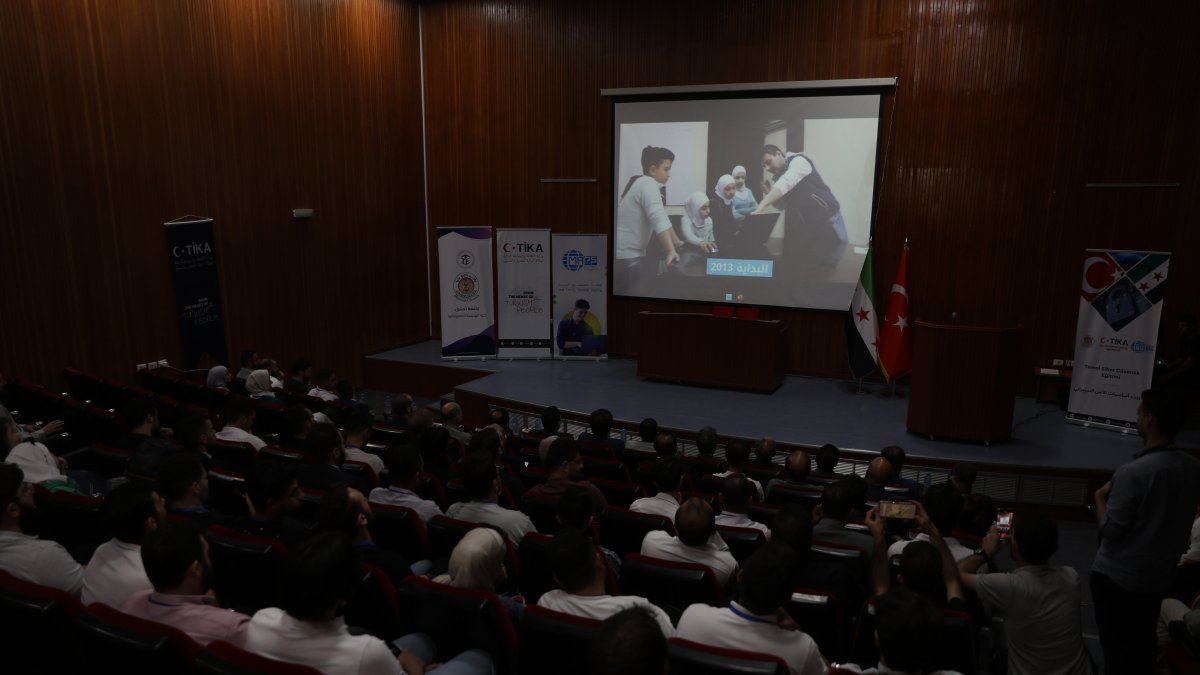

A graduation ceremony was held in Damascus, Syria, for participants who completed a basic cybersecurity training program organized through a collaboration between the Turkish Cooperation and Coordination Agency (TIKA) and Multi-Aid Programs (MAPS).
With the increasing global importance of cybersecurity, TIKA and MAPS conducted a foundational-level cybersecurity training at Damascus University.
The training included 60 participants, consisting of academics and students from the university as well as IT personnel from various ministries in Syria.
Held between June 28 and July 3, the training was delivered by instructors from expert companies specialized in cybersecurity, as designated by the Türkiye Cyber Security Cluster.
The graduation ceremony was attended by Türkiye’s Education Counselor Musa Budak, military attache Lt. Col. Hasan Göz from the Turkish Embassy in Damascus, TIKA Damascus Coordinator Bilal Özdan, representatives from MAPS and the Syrian Ministry of Communications, along with trainers and graduates.
Certificates were presented to students who completed the training.
Özdan emphasized the growing importance of cybersecurity, describing it as a major front in today’s unseen wars.
He stated that the training programs in Syria aim to strengthen cooperation with friendly and brotherly countries. “Our goal is to share our experience and provide Türkiye’s software and hardware solutions. We have launched a multi-stage and modular training process,” he said.
Özdan added that after this basic training, participants will receive more advanced training in Türkiye. “Ultimately, we aim to enhance Syria’s capacity in the field of cybersecurity as much as possible,” he said.
Ibrahim Shaker, a training graduate, described the program as rich in organization and content. He said the course started with the fundamentals of network systems and gradually progressed to the basics of ethical hacking.
He explained that they then learned defense techniques and many important tools and methods.
Shaker highlighted that the training taught how to close security gaps in public institutions and private companies, expressing that the program provided high added value.




